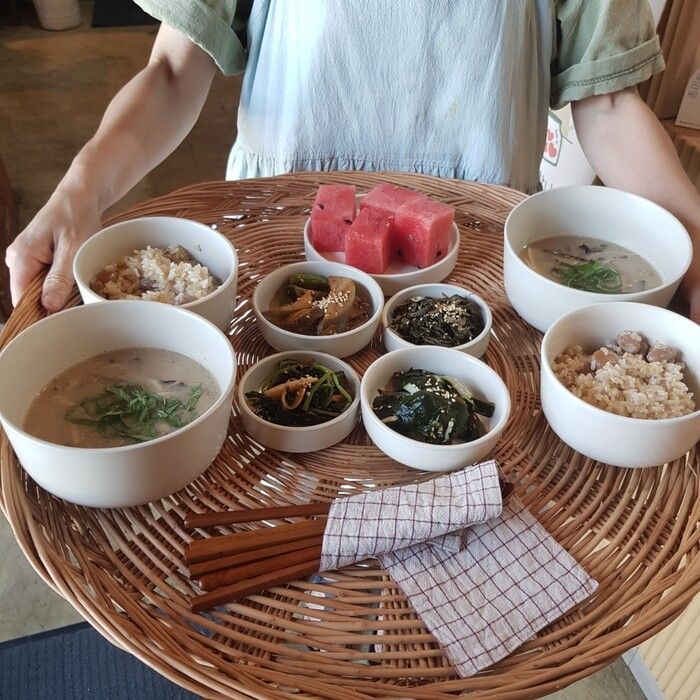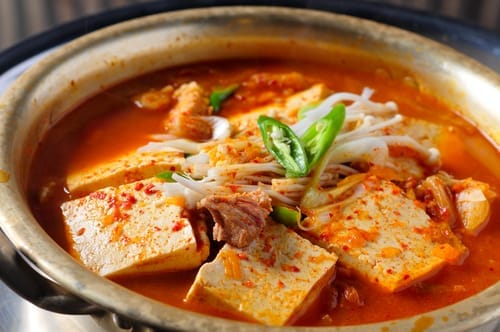Photo: Vegan bok platter from Cafe Igong. Credit: Cafe Igong.
July 21 was jungbok 중복, one of the three “bok” days (along with chobok 초복 and malbok 말복) on Korea’s traditional calendar marking the hottest days of the summer. (The Chinese character for bok, 伏, means “to prostrate” - as in, defeated by the heat.) A bok day has also been an unofficial annual marker for the foreign press in South Korea, as it was the cue to run the stereotypical “Koreans eat dog meat” stories. Traditionally, as a way to manage heat, Koreans ate hot soup on bok days, made with either chicken or, yes, dog meat.
Jungbok this year is a scorcher, with a heat wave driving the temperature for most of South Korea to 36c (97f) and above. But dog meat restaurants in South Korea are petering out as dogs-as-pets culture takes root. On July 19, the Ministry of Justice 법무부 proposed a bill that would revise Article 98 of the Civil Act 민법, which treats animals a “corporeal thing” 유체물, the same as any inanimate object. The revision would insert a new provision that gives a different status to animals, providing a legal foundation for protecting them.
Korea’s vegetarians and vegans, who are increasing in number each year, propose forgoing meat for bok days altogether. Igong, 이공, a cafe in Gwangju, Jeollanam-do Province 전라남도 광주, presented a vegan bok meal consisting of brown rice and mushroom perilla seed soup, as an alternative to the popular bok treat samgyetang 삼계탕, a hot chicken soup with ginseng.








